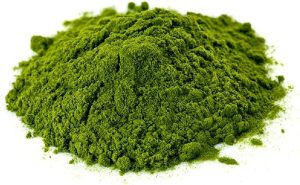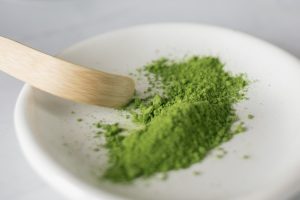
- Overview of Grape Seed Extract
- Brief History of Grape Seed Extract
- Functions of Grape Seed Extract
- Recommended Daily Intake (RDI), Recommended Dietary Allowance (RDA), Adequate Intake (AI), or Reference Nutrient Intake (RNI) for Grape Seed Extract
- Deficiency of Grape Seed Extract
- Food Sources of Grape Seed Extract and Where to Get It From
- Grape Seed Extract and Its Interaction with Other Medications
- Websites and Articles to Delve into the Benefits of Grape Seed Extract
- Disclaimer
Overview of Grape Seed Extract
Grape seed extract, derived from the seeds of grapes, is a natural supplement renowned for its antioxidant-rich composition, including phenolic acids and proanthocyanidins. These antioxidants combat free radicals, potentially offering cardiovascular benefits by supporting blood vessel health and reducing oxidative stress.
The extract is also associated with anti-inflammatory properties, contributing to conditions like arthritis. Widely used in skincare for its potential to protect against UV damage and stimulate collagen production, grape seed extract may promote youthful skin. Some studies suggest neuroprotective effects, while its anticancer potential and possible role in diabetes management require further research.
Despite generally being considered safe, individuals should consult healthcare professionals due to potential interactions and individual variations in response.
Brief History of Grape Seed Extract
The use of grape seed extract can be traced back to ancient civilizations where various parts of the grape plant, including seeds, were utilized for medicinal purposes. However, the extraction and concentrated use of grape seed compounds gained prominence in the late 20th century.
In the 20th century, researchers began to investigate the health benefits of grape seeds, particularly their rich content of proanthocyanidins and other antioxidants. The French Paradox, a phenomenon where despite a diet high in saturated fats, the French exhibited lower rates of cardiovascular diseases, drew attention to the potential cardiovascular benefits of red wine, including grape seeds.
In the 1990s, interest in grape seed extract surged as scientists explored its antioxidant properties and potential health advantages. Since then, numerous studies have been conducted to understand its effects on cardiovascular health, inflammation, skin health, and more.
Today, grape seed extract is a popular dietary supplement, and ongoing research continues to uncover its potential therapeutic applications and health benefits.
Functions of Grape Seed Extract
Grape seed extract is known for its various potential health benefits, primarily attributed to its rich content of antioxidants and other bioactive compounds. Here are some of the key functions associated with grape seed extract:
- Antioxidant Activity:
- Grape seed extract is a potent source of antioxidants, including proanthocyanidins. These compounds help neutralize free radicals in the body, reducing oxidative stress and cellular damage.
- Cardiovascular Support:
- The antioxidants in grape seed extract may promote cardiovascular health by enhancing blood vessel flexibility, improving circulation, and reducing oxidative damage to the cardiovascular system. This can contribute to lower blood pressure and a reduced risk of heart-related issues.
- Anti-Inflammatory Effects:
- Grape seed extract has anti-inflammatory properties that may help alleviate inflammation throughout the body. This can be beneficial for conditions associated with chronic inflammation, such as arthritis.
- Skin Health:
- Due to its antioxidant content, grape seed extract is used in skincare products. It may help protect the skin from UV radiation, promote collagen production, and contribute to healthier and more youthful-looking skin.
- Neuroprotective Potential:
- Some studies suggest that grape seed extract may have neuroprotective effects, potentially supporting brain health and reducing the risk of neurodegenerative diseases. However, more research is needed in this area.
- Anticancer Properties:
- Preliminary research indicates that grape seed extract may exhibit anticancer properties by inhibiting the growth of cancer cells. However, further studies are required to confirm its efficacy in cancer prevention and treatment.
- Diabetes Management:
- Grape seed extract has been investigated for its potential role in managing diabetes. It may improve insulin sensitivity and reduce complications associated with diabetes, although more research is needed to establish its effectiveness.
- Eye Health:
- The antioxidants in grape seed extract may benefit eye health by protecting the retina from oxidative damage. This could potentially contribute to the prevention of age-related macular degeneration (AMD) and other eye conditions.
- Wound Healing:
- Some studies suggest that grape seed extract may support wound healing processes, possibly due to its antioxidant and anti-inflammatory properties.
It’s important to note that while grape seed extract shows promise in these areas, more research is needed to fully understand its mechanisms and establish recommended dosages for specific health conditions. Individuals should consult with healthcare professionals before incorporating grape seed extract into their routine, especially if they have existing health conditions or are taking medications.
Recommended Daily Intake (RDI), Recommended Dietary Allowance (RDA), Adequate Intake (AI), or Reference Nutrient Intake (RNI) for Grape Seed Extract
There is no established Recommended Daily Intake (RDI), Recommended Dietary Allowance (RDA), Adequate Intake (AI), or Reference Nutrient Intake (RNI) for grape seed extract. Grape seed extract is typically marketed as a dietary supplement rather than a nutrient with established daily requirements.
The use of dietary supplements, including grape seed extract, varies based on individual health needs, and recommendations may differ. Dosages can depend on factors such as age, health status, and the specific health goals of the individual.
It’s important to note that dietary supplements should be used with caution, and individuals are advised to consult with healthcare professionals before incorporating them into their routine. While grape seed extract is generally considered safe for most people when taken in appropriate amounts, excessive intake may lead to potential side effects or interactions with medications.
Since recommendations and guidelines may change over time, it’s advisable to check with healthcare providers or relevant health authorities for the most up-to-date information on the use of grape seed extract or any other dietary supplements.
Deficiency of Grape Seed Extract
Grape seed extract is not considered an essential nutrient, and thus, there is no recognized deficiency associated with it. Essential nutrients are substances that the body cannot produce on its own and must be obtained through the diet. Grape seed extract, on the other hand, is typically used as a dietary supplement for its potential health benefits, particularly its antioxidant properties.
While grape seed extract is generally safe for most people when taken in appropriate amounts, it’s important to note that it is not a substance for which deficiency or toxicity is commonly discussed in the same way as essential vitamins or minerals. Instead, the focus is on the potential health benefits associated with its use.
Individuals are advised to use dietary supplements, including grape seed extract, with caution and under the guidance of healthcare professionals. Excessive intake of supplements can lead to adverse effects, and interactions with medications should also be considered.
If you have specific health concerns or conditions, it’s recommended to consult with a healthcare provider before incorporating grape seed extract or any other supplements into your routine. They can provide personalized advice based on your individual health status and needs.
Food Sources of Grape Seed Extract and Where to Get It From
Grape seed extract is not typically consumed directly from food sources in the same way that fruits or vegetables are. Instead, it is commonly available as a dietary supplement in the form of capsules, tablets, or liquid extracts. The extract is derived from the seeds of grapes, particularly those of red grapes.
If you’re interested in obtaining grape seed extract, you can find it in health food stores, pharmacies, and online retailers. When choosing a supplement, it’s important to consider factors such as the product’s quality, purity, and dosage. Here are some common forms of grape seed extract:
- Capsules and Tablets:
- Grape seed extract is often encapsulated or compressed into tablets. These forms provide a convenient way to incorporate the extract into your daily routine.
- Liquid Extracts:
- Liquid forms of grape seed extract may be available, and they can be mixed with water or other beverages. This form may be suitable for those who prefer liquids over capsules.
- Powder:
- Some supplements offer grape seed extract in powdered form. This can be mixed with water, juice, or added to smoothies.
When selecting a grape seed extract supplement, consider the following:
- Standardization:
- Look for products that are standardized to contain a specific percentage of proanthocyanidins, which are believed to be the active compounds responsible for many of the health benefits.
- Purity:
- Choose a supplement from a reputable manufacturer that ensures the product is free from contaminants.
- Dosage:
- Follow the recommended dosage on the product label or as advised by your healthcare provider.
It’s essential to note that while grape seed extract is generally considered safe for most people when taken in appropriate amounts, it’s important to consult with a healthcare professional before adding it to your routine, especially if you have existing health conditions or are taking medications. Additionally, obtaining nutrients through a well-balanced diet that includes a variety of fruits and vegetables is always a good practice for overall health.
Grape Seed Extract and Its Interaction with Other Medications
Grape seed extract, like many dietary supplements, can potentially interact with certain medications. It’s important to be aware of these interactions to prevent adverse effects or reduced effectiveness of medications. Here are some common types of medications that may interact with grape seed extract:
- Blood Thinners (Anticoagulants/Antiplatelet Drugs):
- Grape seed extract may have mild blood-thinning effects, so combining it with anticoagulant or antiplatelet medications (e.g., warfarin, aspirin, clopidogrel) may increase the risk of bleeding. It’s crucial to consult with a healthcare professional to manage the potential interactions.
- Non-Steroidal Anti-Inflammatory Drugs (NSAIDs):
- Grape seed extract has anti-inflammatory properties, and combining it with NSAIDs (e.g., ibuprofen, naproxen) may increase the risk of bleeding or gastrointestinal issues. Consultation with a healthcare provider is advisable.
- Anti-Hypertensive Medications:
- Grape seed extract may have blood pressure-lowering effects. Combining it with antihypertensive medications may lead to an excessive decrease in blood pressure. Monitoring and adjustment of medication doses may be necessary under medical supervision.
- Immunosuppressants:
- Individuals taking immunosuppressant medications (e.g., cyclosporine) should be cautious with grape seed extract due to its potential immunomodulatory effects. Interactions may affect the immune system’s response.
- Chemotherapy Drugs:
- Some studies suggest that grape seed extract may have anticancer properties, but it can also interact with certain chemotherapy drugs. Patients undergoing cancer treatment should discuss supplement use with their oncologist.
- Cytochrome P450 Enzyme System Interactions:
- Grape seed extract may influence the activity of the cytochrome P450 enzyme system in the liver, which is involved in metabolizing many medications. Interactions may affect the levels of certain drugs in the bloodstream.
Always inform your healthcare provider about any dietary supplements you are taking, including grape seed extract. They can assess the potential for interactions based on your individual health and medication regimen. It’s crucial not to self-adjust medication doses or start or stop supplements without professional guidance.
Remember that individual responses to supplements and medications can vary, and healthcare providers can provide personalized advice to ensure your safety and well-being.
Websites and Articles to Delve into the Benefits of Grape Seed Extract
To learn more about the benefits of grape seed extract, you can explore reputable websites and articles from scientific journals, health organizations, and trusted sources. Here are some suggested resources:
- National Center for Complementary and Integrative Health (NCCIH):
- Mayo Clinic:
- WebMD:
- PubMed (National Library of Medicine):
- You can search for scientific articles on grape seed extract by using PubMed. Here’s an example search link: PubMed – Grape Seed Extract
- Healthline:
- Harvard Health Publishing – Harvard Medical School:
- University of Maryland Medical Center:
Always ensure that the information you read is from reputable sources, such as government health agencies, academic institutions, or well-known health publications. Additionally, consulting with healthcare professionals, such as your doctor or a registered dietitian, can provide personalized advice based on your specific health needs and conditions.
Disclaimer
The information is solely provided for educational purposes. It is not intended to diagnose, treat, cure, or prevent any disease. Seek the advice of your physician or qualified healthcare provider with any questions you may have regarding a medical condition at all times. Never disregard professional medical advice because of something you have read or learned from this article.






